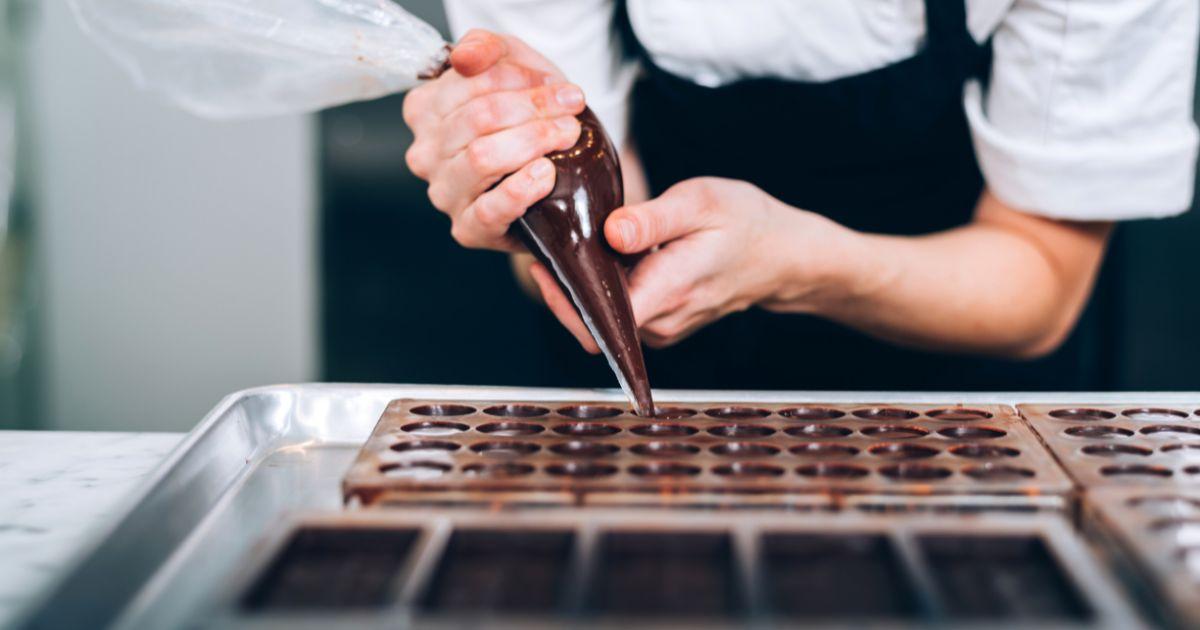Chocolate has a special place in the hearts of people of all ages, thanks to its delightful taste and versatility. From simple chocolate-covered nuts to intricate chocolate confections, various chocolate products bring joy to many. But who’s behind these mouthwatering masterpieces? The answer lies with the skilled artisans known as chocolatiers. In this article, we’ll dive into the world of chocolatiers, exploring their roles, skills, the chocolate industry, and the fascinating chemistry of chocolate.
The Art of Chocolatiering
The Chocolatier’s Job
A chocolatier is a combination of an artist and a craftsman, specializing in the creation of confections with chocolate as the main ingredient. Their job is to develop and produce exquisite chocolates that taste not only outstanding but also have visual appeal. Chocolatiers possess extensive knowledge about chocolate, including its origins, composition, and various types. They also have the ability to pair chocolate with other ingredients and flavours, giving life to unique and innovative confections.

Types of Chocolatiers
Chocolatiers come in different flavours, each focusing on specific aspects of chocolate-making:
Artisan Chocolatiers
These independent, small-scale chocolate makers handcraft their chocolates, emphasizing quality, creativity, and unique flavor combinations. They source high-quality ingredients and pay attention to every detail to create one-of-a-kind chocolates.
Industrial Chocolatiers
Industrial chocolatiers work for larger chocolate companies that produce chocolates on a mass scale. They have the same skills as artisan chocolatiers but focus more on consistency, efficiency, and meeting the demands of a broader market.
Bean-to-Bar Chocolatiers
Bean-to-bar chocolatiers are involved in every step of the chocolate-making process, from sourcing cacao beans to producing the final bar chocolate. They have a deep understanding of cacao farming, bean selection, and chocolate production techniques, which enables them to create chocolates with distinct and complex flavors.
Skills and Techniques
Chocolatiers master various skills and techniques to create exceptional chocolate confections:
Tempering Chocolate
Chocolate tempering is a crucial process that ensures the chocolate has a smooth texture, glossy appearance, and crisp snap. Chocolatiers need to control the temperature of the chocolate carefully to achieve the desired crystalline structure.
Molding and Shaping
Chocolatiers use molds and other tools to create intricate shapes and designs, turning chocolate into eye-catching and appealing confections.
Flavor Pairing
An essential skill for chocolatiers is the ability to pair chocolate with various ingredients, such as fruits, nuts, spices, and even alcohol, to create innovative and delightful flavor combinations.
Chocolate Decoration
Chocolatiers employ various techniques, such as painting, piping, and airbrushing, to decorate their chocolates and make them visually stunning. Mastery of these skills allows them to create unique and artistic confections.
Education and Training
Becoming a skilled chocolatier requires dedication, passion, and proper education and training:
Culinary Schools
Many aspiring chocolatiers enroll in culinary schools or pastry programs that offer specialized courses in chocolate-making. These programs provide a solid foundation in the techniques and skills required to become a successful chocolatier.
Apprenticeships
Learning from experienced chocolatiers through apprenticeships can be invaluable. Working alongside a skilled professional allows aspiring chocolatiers to hone their craft, learn industry secrets, and develop their unique style.
Certifications
Though not mandatory, obtaining certifications can showcase a chocolatier’s expertise and dedication to their craft. Organizations such as Ecole Chocolat and the International Chocolate Awards provide various certification programs for chocolatiers to enhance their skills and credibility.
The Chocolate Industry
The chocolate industry is both vast and diverse, encompassing numerous brands and catering to different markets.
Major Chocolate Companies
Industry giants like Nestlé, Hershey’s, and Cadbury lead the chocolate market with their mass-produced and widely available products. These companies strive to produce consistent, affordable chocolates that appeal to a broad audience.
Niche Markets
In contrast, smaller, artisan chocolatiers focus on niche markets, crafting unique, high-quality chocolates with innovative flavor combinations and artistic designs. These chocolatiers often prioritize sustainability, ethical sourcing, and establishing direct relationships with cacao farmers.
Chemistry of Chocolate
For chocolatiers, understanding the chemistry of chocolate is crucial. Cocoa beans contain a variety of compounds, such as fats, proteins, and flavonoids, which contribute to the taste, texture, and health benefits of chocolate. Processes like fermentation, roasting, and conching influence the development of flavor and aroma compounds. Chocolatiers leverage their knowledge of chocolate chemistry to create confections that meet their desired taste, texture, and appearance.
Conclusion
Chocolatiers are skilled artisans who blend creativity, passion, and technical expertise to craft extraordinary chocolate confections. Ranging from artisan to industrial and bean-to-bar chocolatiers, these professionals play an essential role in the chocolate industry, delighting the taste buds of chocolate lovers worldwide. With the proper education, training, and dedication, anyone passionate about chocolate can embark on a journey to become a chocolatier.
FAQs
1. I’ve heard about chocolatiers and chocolate makers. What sets them apart?
Great question! A chocolatier is an artist who crafts confections using chocolate as the main ingredient. On the other hand, a chocolate maker takes part in the process of producing chocolate from cacao beans. However, some chocolatiers, known as bean-to-bar chocolatiers, are involved in both processes.
2. How much time should I expect to invest in becoming a chocolatier?
The time needed to become a chocolatier varies from person to person, depending on factors like dedication, prior experience, and the level of education and training received. It can take anywhere from a few months to several years to master the essential skills.
3. Is it possible to become a chocolatier without attending culinary school?
Definitely! Although formal education can be advantageous, you can still become a chocolatier through self-study, practice, and learning from experienced professionals in the field.
4. Do chocolatiers typically work with specific types of chocolate?
Yes, many chocolatiers have preferences for certain types of chocolate based on the desired flavor profile and the chocolate’s characteristics. High-quality couverture chocolate, which has a higher cocoa butter content and provides a smoother, more consistent texture, is often preferred.
5. I’d love to try some artisan chocolate. How can I find a local chocolatier?
To find a local artisan chocolatier, you can start by searching online, visiting farmers’ markets, or checking out local specialty food stores. Many artisan chocolatiers also have their own websites or social media pages where you can learn more about their products and even purchase them online. Happy chocolate hunting!

